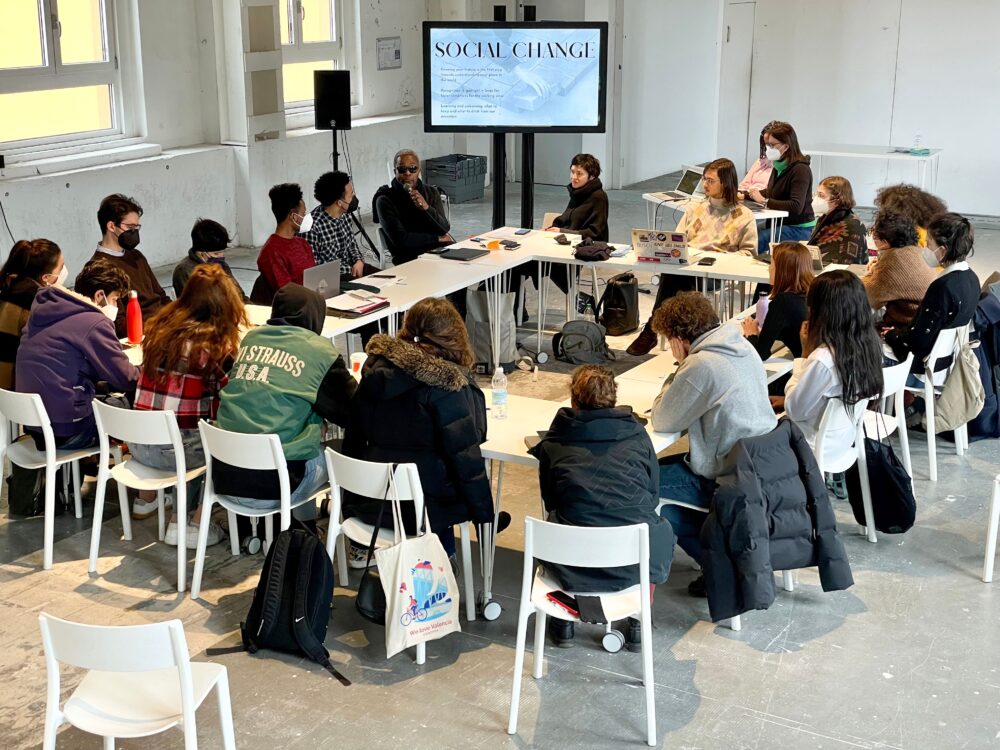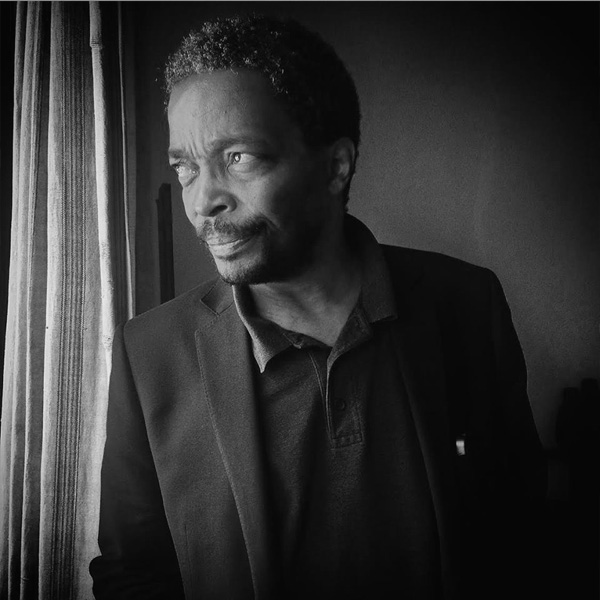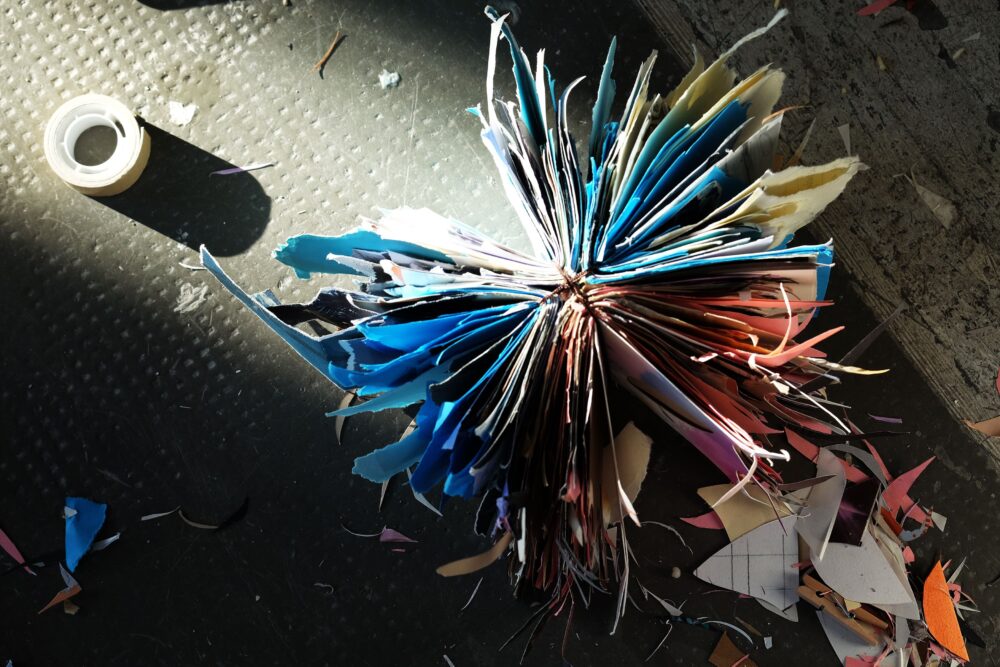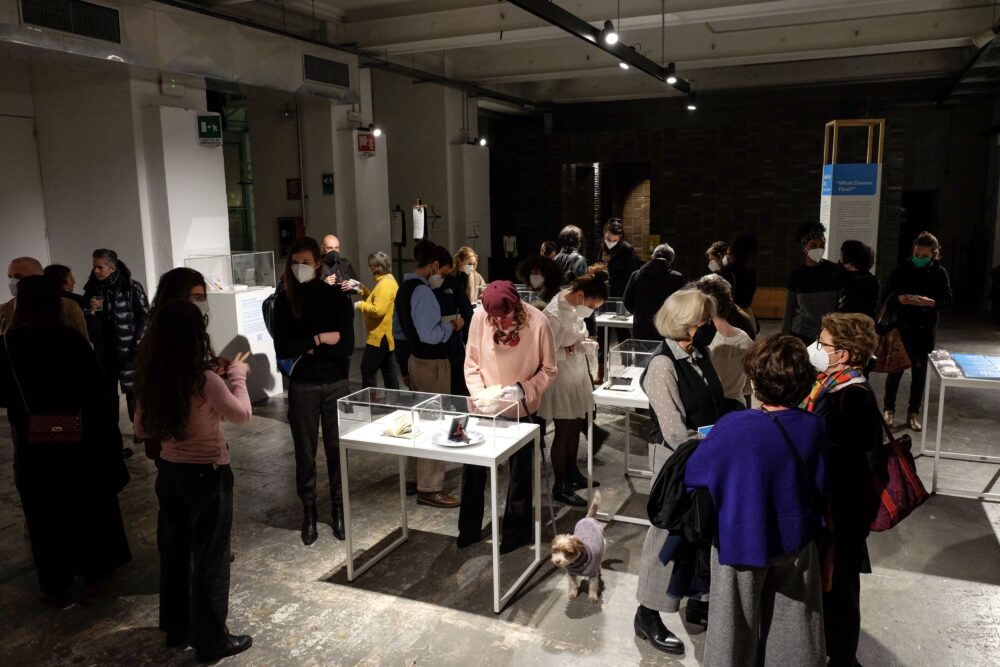"What comes first?"
Conductor:Simon Njami
“I have learned to have faith in the process. And that in the process, we are never alone.”
Brixhilda Shqalsi
AtWork Milan Chapter 19 has been implemented by Moleskine Foundation in partnership with BASE Milano. It was the first event that inaugurated this partnership, since the Foundation has its headquarters at BASE since November 2021.
The workshop was the first leg of “What comes first?” 2022 Tour and the first physical event since the Covid19 pandemic broke out in 2020.
Simon Njami comments on the topic:
There has been an ongoing debate between Jean-Paul Sartre and Albert Camus on choices and responsibility. When asked what his choice between his mother and his country would be, Camus replied without any hesitation, my mother.
Of course, Sartre, who placed the idea and the cause above everything, disagreed. We are faced on daily basis, with critical choices that force us to take a stand or an action. The way we decide what comes first is never as fixed as for Sartre and Camus. There are times where we would make different choices and chose different priorities, depending on the situation. But the reality is that it is a question we shall never be able to answer at our full satisfaction. It is like trying to answer the impossible question: what came first, between the egg and the hen. Aristotle tried to venture a solution: “the domain of becoming is opposed to that of the essence, because what is posterior in the generational order is, by nature, anterior and what comes first by nature is last in the generational order.”
In the meantime, the Coronavirus has arisen and changed priorities, forcing some of us to live in an emergency that darkened our vision of the future and obscured any routine-free reflection. It is urgent for all of us to regain this ability to think outside of exceptional contingencies.
But we are all free to disagree.

“We personally can say, after looking at our works and what we’ve become after this intense week, that we weren’t afraid. We weren’t afraid of getting lost in the maze of answers, of stumbling in the darkness. We looked into darkness and let our eyes adjust to see what it reflected back to us…. We had the honesty to listen to one another, and in turn to be listened to. We dared to open eyes, hearts and ears. And we can only hope we never lose the bravery of these days. To futures yet to build, to changes yet to be made.”
Alice Mezzanotte and Lola Oludaware, AtWork Milan catalogue Editors

Simon Njami is an independent curator, lecturer, art critic, and writer. He is the co-founder and editor-in-chief of “Revue Noire.” Previously, Njami was the artistic director of the Bamako Photography Biennial 2000-2010 and co-curator of the first African pavilion at the 52nd Venice Biennale in 2007. He has curated a number of contemporary art and photography exhibitions, including Africa Remix (2004-2007) and the first African art fair in Johannesburg in 2008. In 2014, The Divine Comedy exhibition, created and curated by him, started a world tour at the MMK (Museum für Moderne Kunst) in Frankfurt, moving on to the SCAD Museum of Art in Savannah and the Smithsonian Museum of African Art in Washington, DC. He is the director of the Pan African Master Classes in Photography, a project created in partnership with the Goethe Institute; artistic director of the Donwahi Foundation (Abidjan, Ivory Coast); advisor to the Sindika Dokolo Collection (Luanda, Angola); secretary of the special jury of the World Press Photography Awards; artistic director of the first edition of Off Biennale (Cairo, 2015) and the 2016 and 2018 Dak’Art.
Past the debate between Sartre and Camus, the participants had the chance to take a look inward, and the theme question became a starting point for deeper reflections.
“It seems such a simple question. What Comes First? But from this point we’ve explored so many others just as difficult to answer. Why do we value what we do? What are we striving for? And how can we truly reach our dreams? How much has history impacted us and how we see the world? Can we learn from it, to see who has tried before us? To see where we want to rhyme in its eternally moving poem?”
Editor statement by Alice Mezzanotte and Lola Oluwadare
The reflection process continued as they were presented with the notebooks serving as a support of infinite options to express their creativity. It resulted in unique pieces that reflect how days of discussion and debating impacted them in different ways.
“Each work has had a profound gestation, related to the most intimate sphere of each of us. What we are presenting here is a mirror of our doubts and needs, which are always linked to a present that we are going through, and therefore building.”
Curatorial statement by Matteo Zoccolo and Stanislao Satta
The participants also had the chance to present projects dear to them that they wish to bring to light or move forward thanks to a newfound sense of creativity and changemaking attitude.
To extend the discussion to the general public we held a public conversation on January 27th at BASE between Moleskine Foundation’s CEO Adama Sanneh and Simon Njami. Starting from the question “What comes first?” they have discussed the importance of unconventional educational models in unlocking the creative potential of young people all over the world.

“It seems such a simple question. What Comes First? But from this point we’ve explored so many others just as difficult to answer. Why do we value what we do? What are we striving for? And how can we truly reach our dreams? How much has history impacted us and how we see the world? Can we learn from it, to see who has tried before us? To see where we want to rhyme in its eternally moving poem?”
Editor statement by Alice Mezzanotte and Lola Oluwadare.
The creations from AtWork Milan exhibited at BASE Milano are the result of this process of self-reflection through which they all found out what comes first: Love, Dialogue, Time, Listening, Experience, Relationships. These are just some of the topics reflected in the 17 notebooks transformed and now charged with deeply personal meaning.
The exhibition was inaugurated the 31st of January and was on display until February 18th.
The catalogue, created by the participants, features the works and their meanings.

“Each work has had a profound gestation, related to the most intimate sphere of each of us. What we are presenting here is a mirror of our doubts and needs, which are always linked to a present that we are going through, and therefore building.”
Curatorial statement by Matteo Zoccolo and Stanislao Satta.